There are several theories regarding the concept of intelligence proposed by psychologists over time. Carroll proposed a three-stratum model of intelligence focusing on specific, broad, and general cognitive abilities. Gardner theorized multiple intelligences including linguistic, logical-mathematical, musical, bodily-kinesthetic, interpersonal, intrapersonal, naturalistic, and spatial abilities. Sternberg described intelligence as having analytic, creative, and practical components in his triarchic theory. While these theories differ in how they conceptualize intelligence, they have all contributed to the understanding of human intelligence and cognitive abilities.
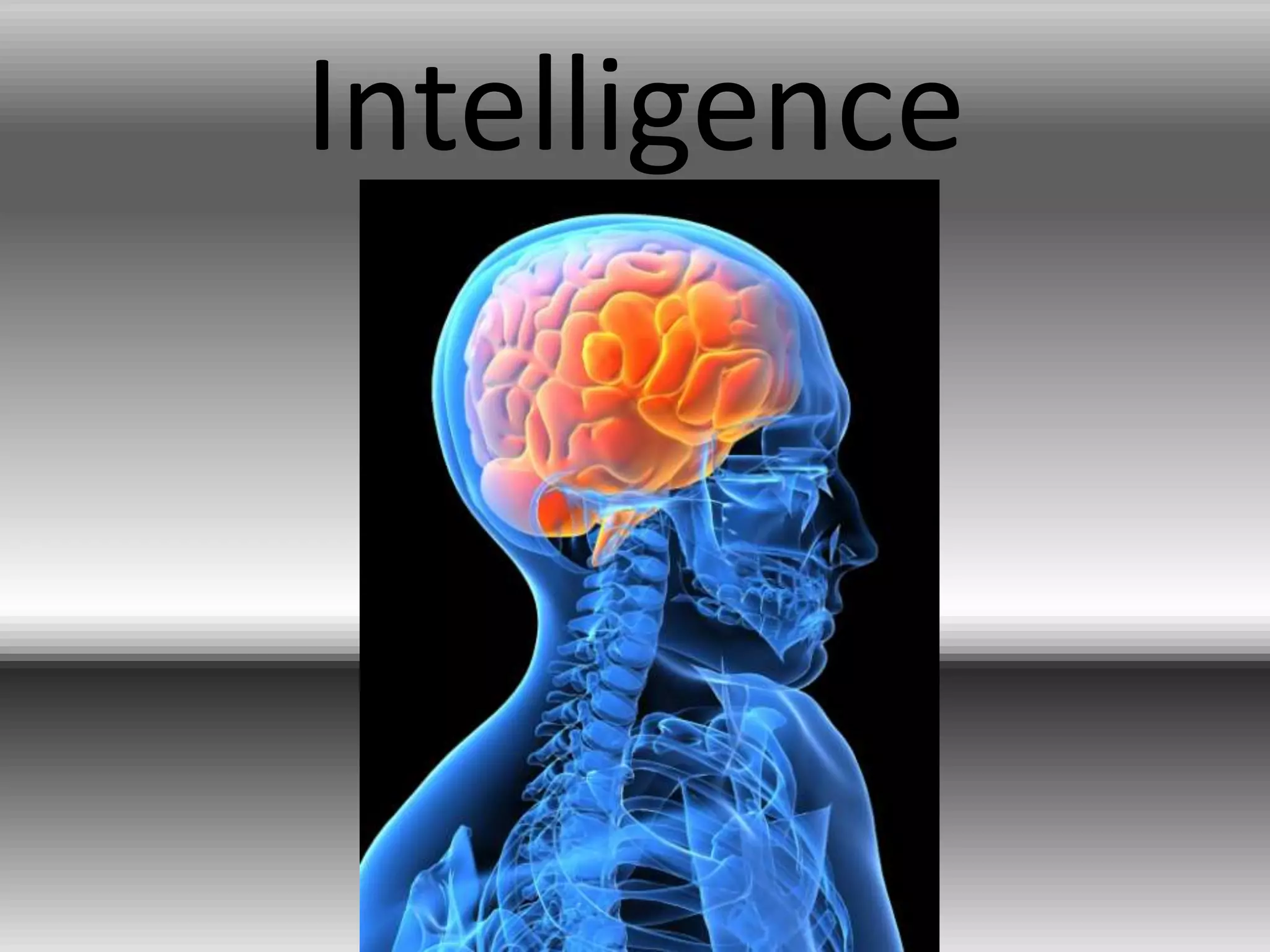
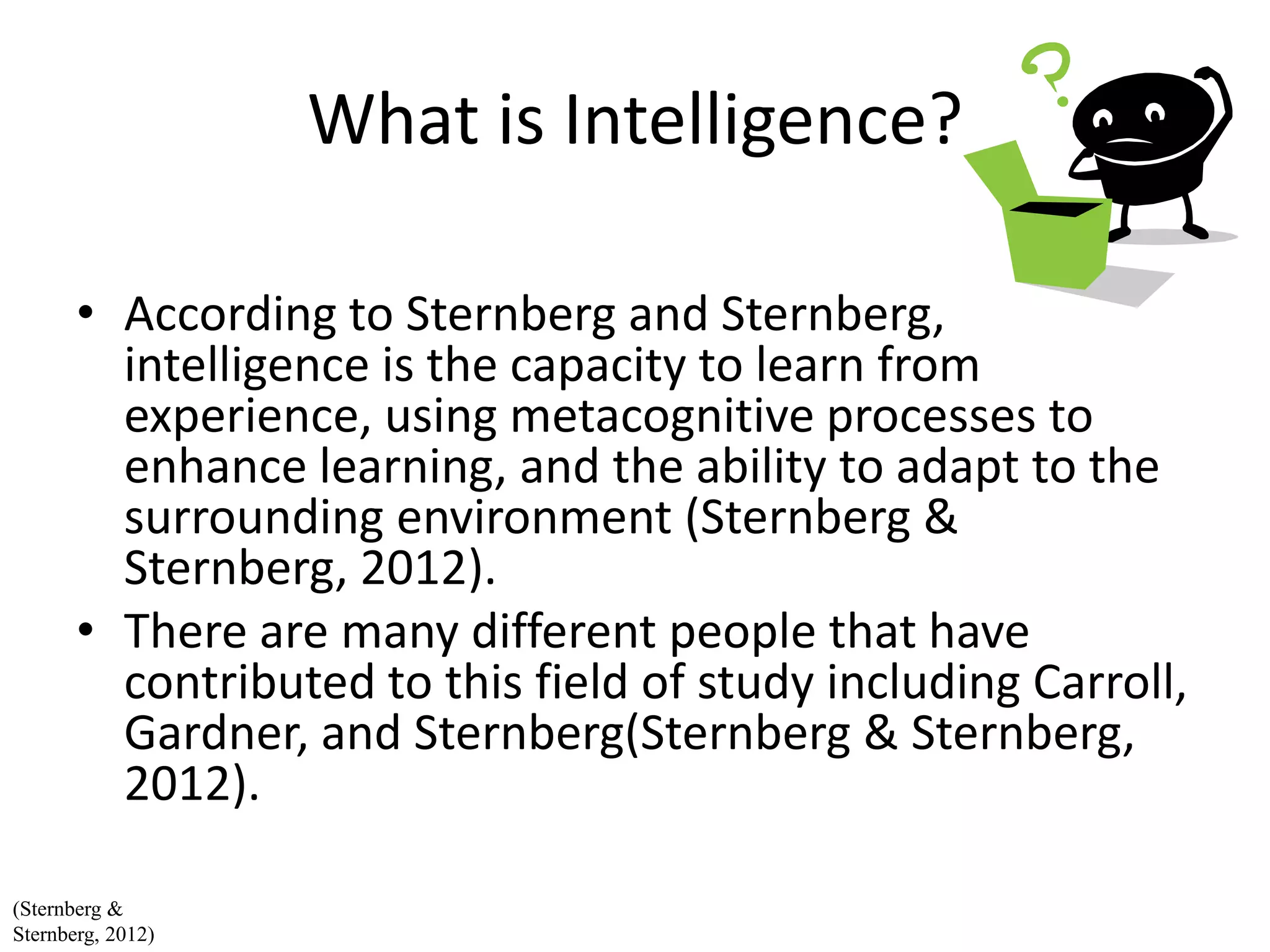
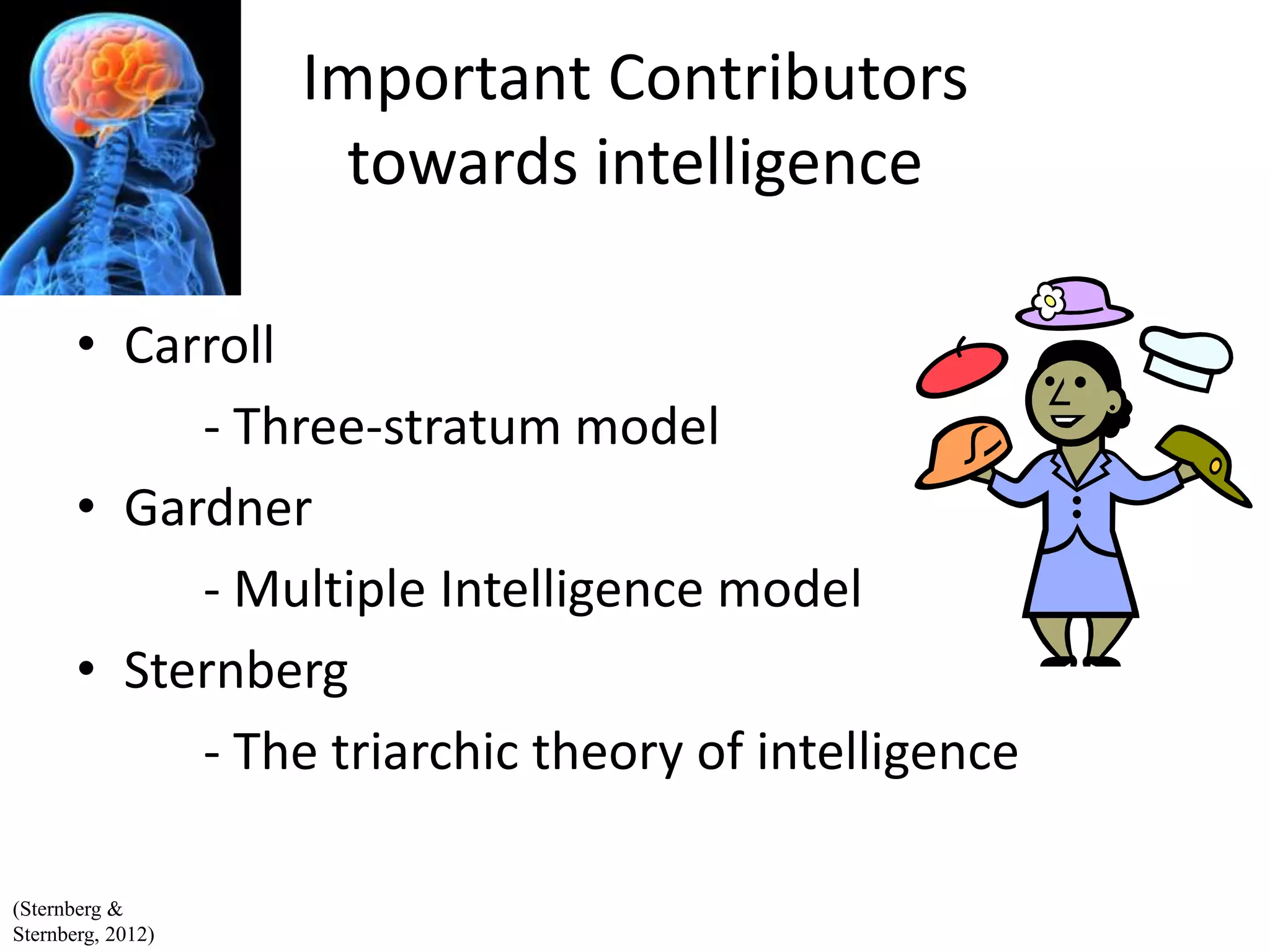
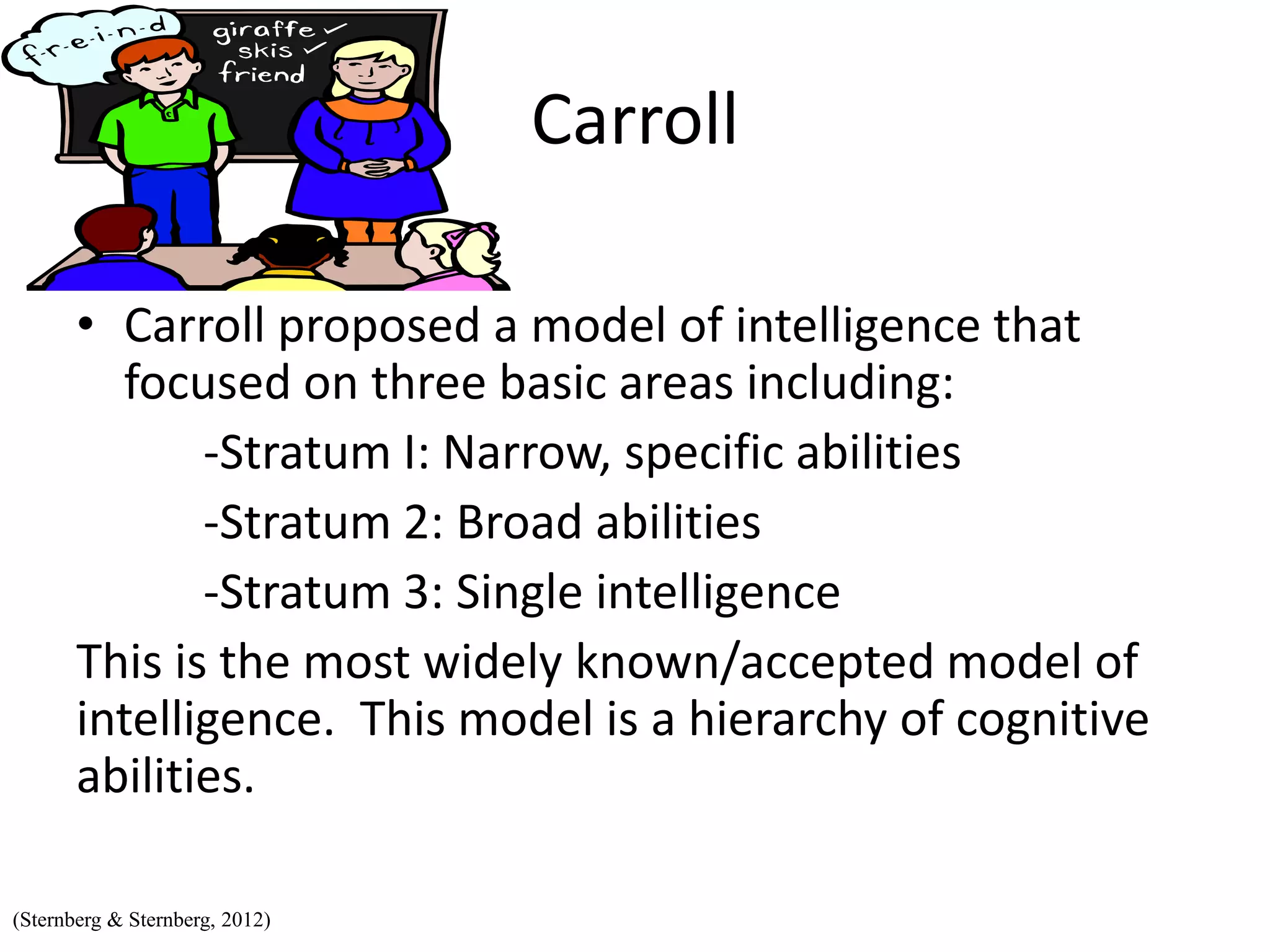
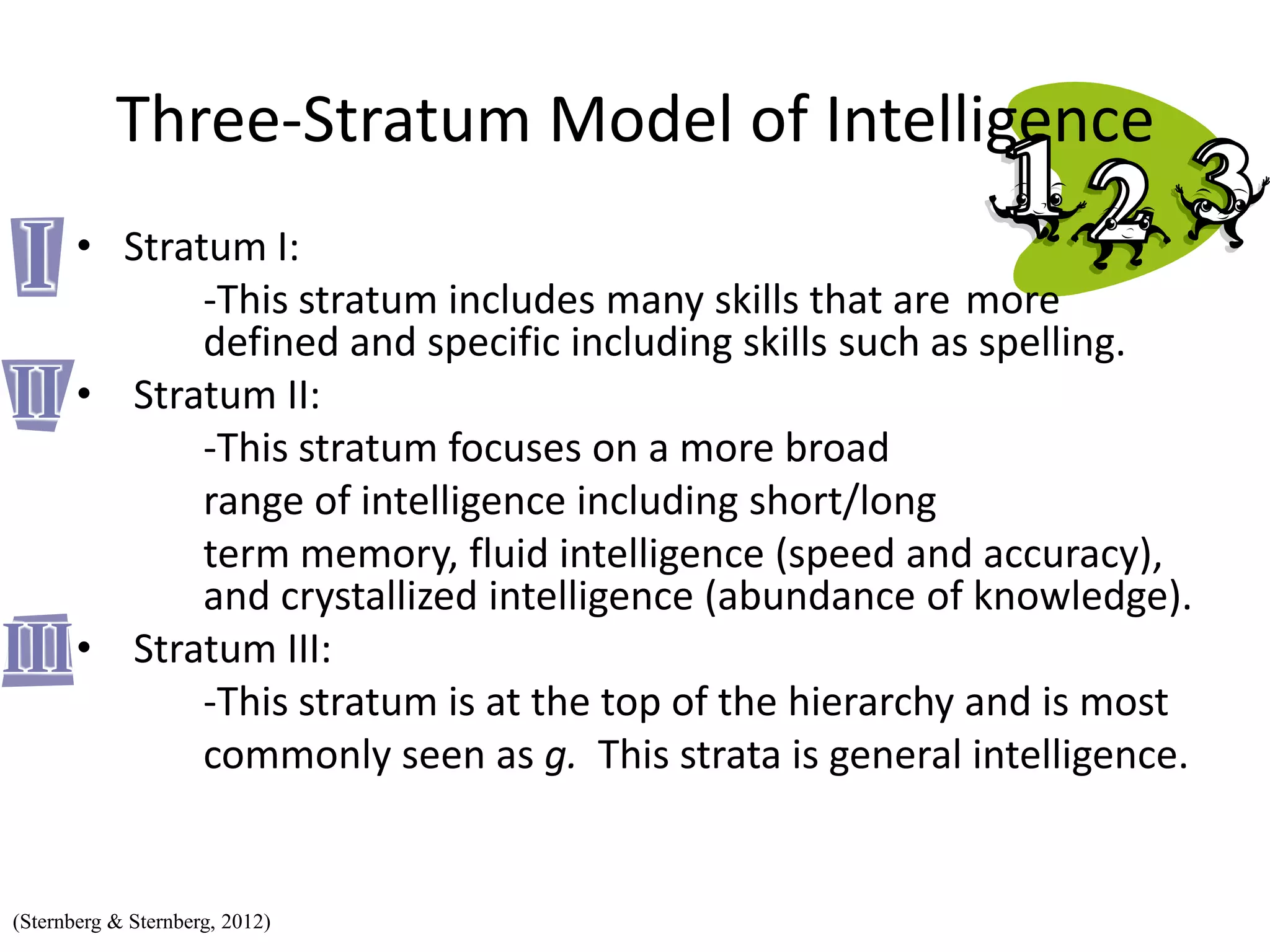
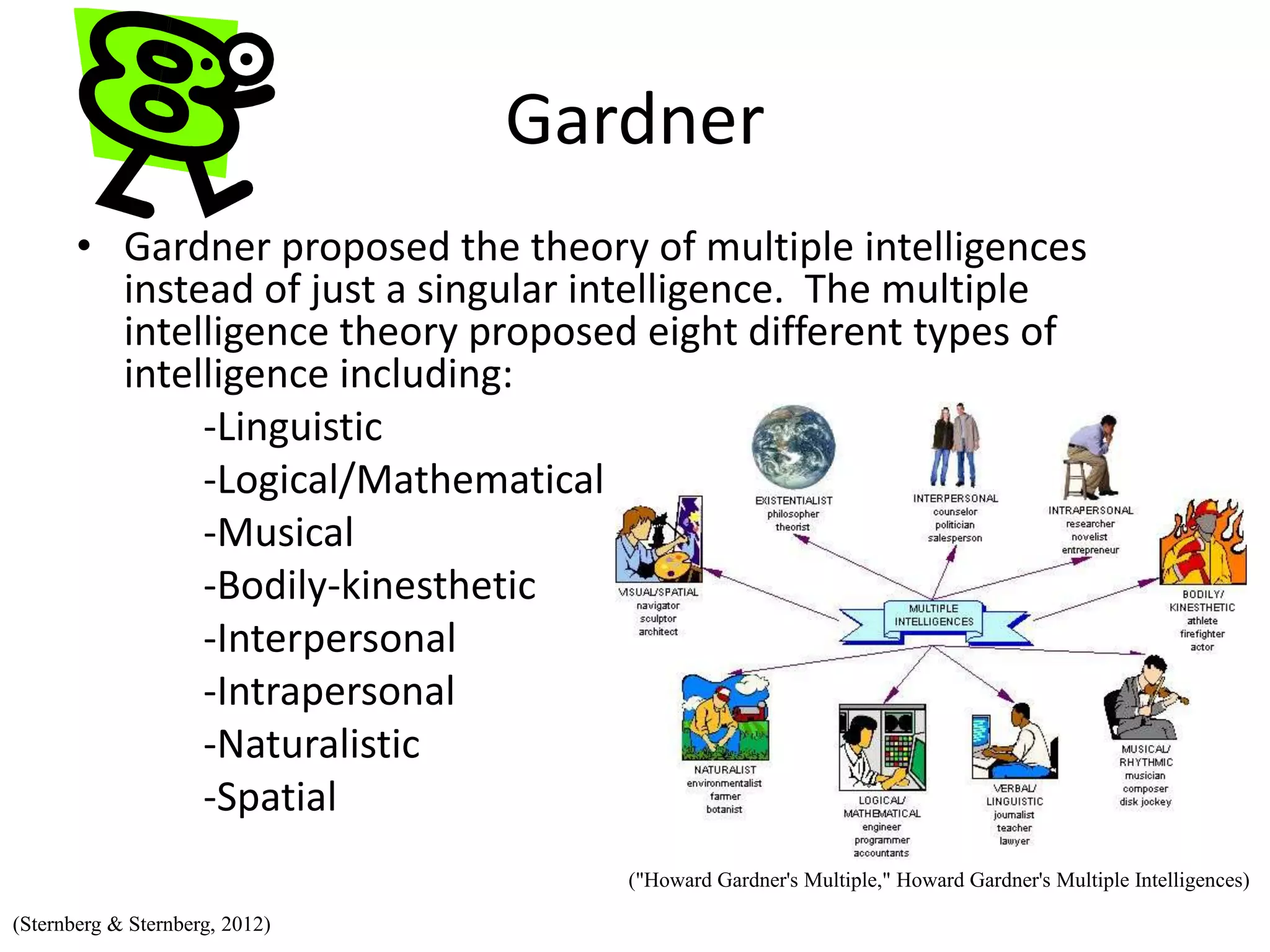
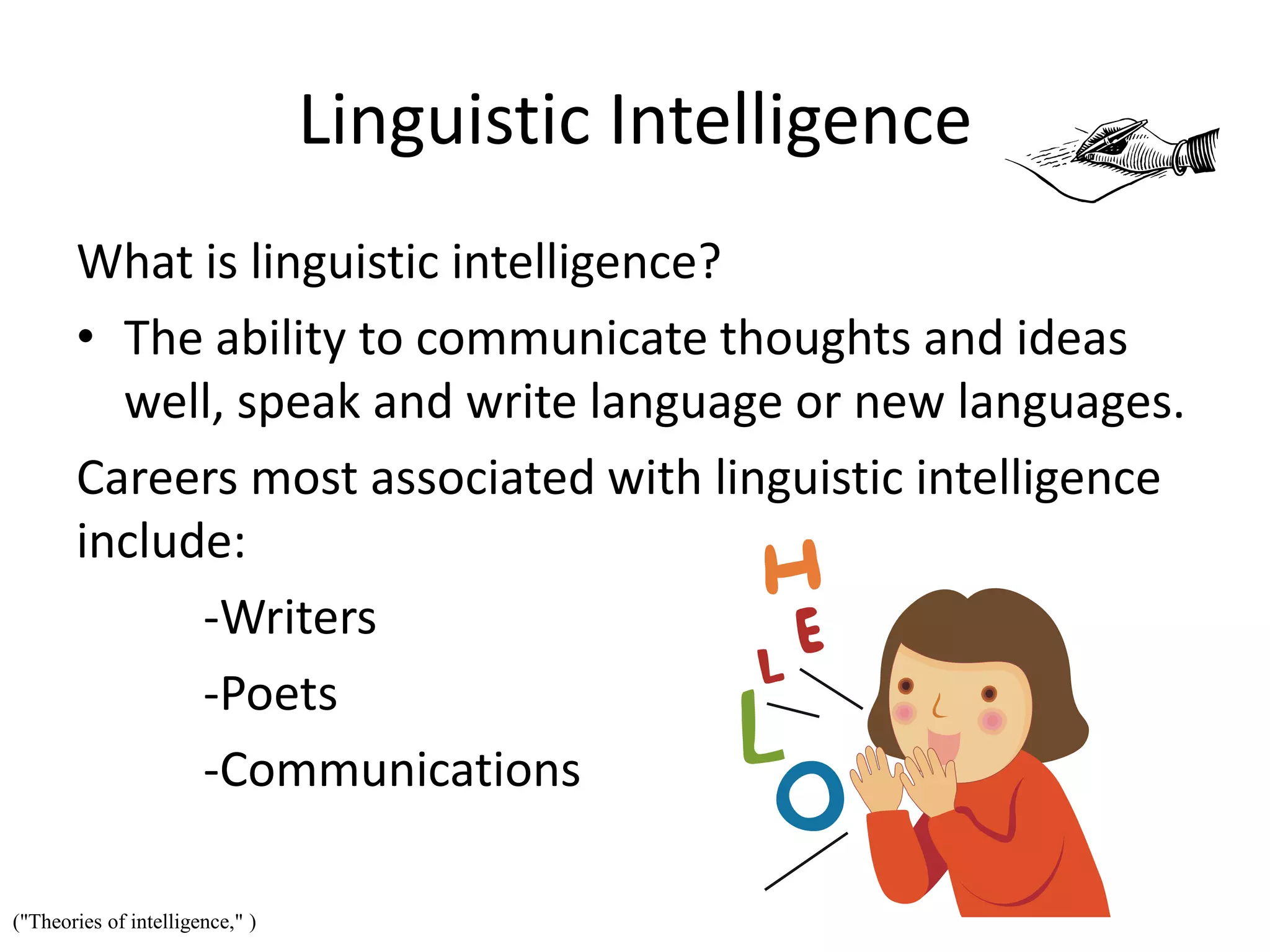
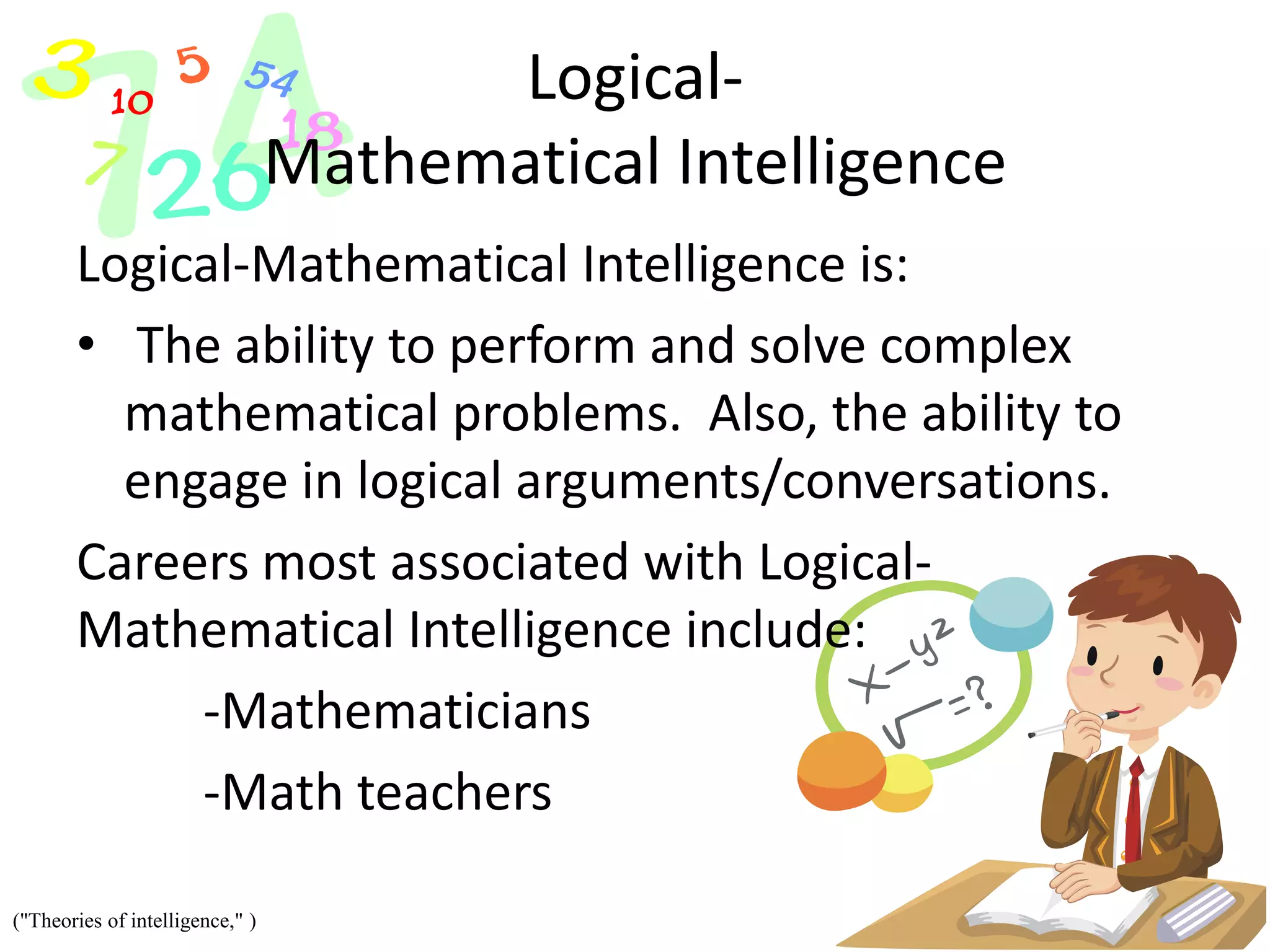
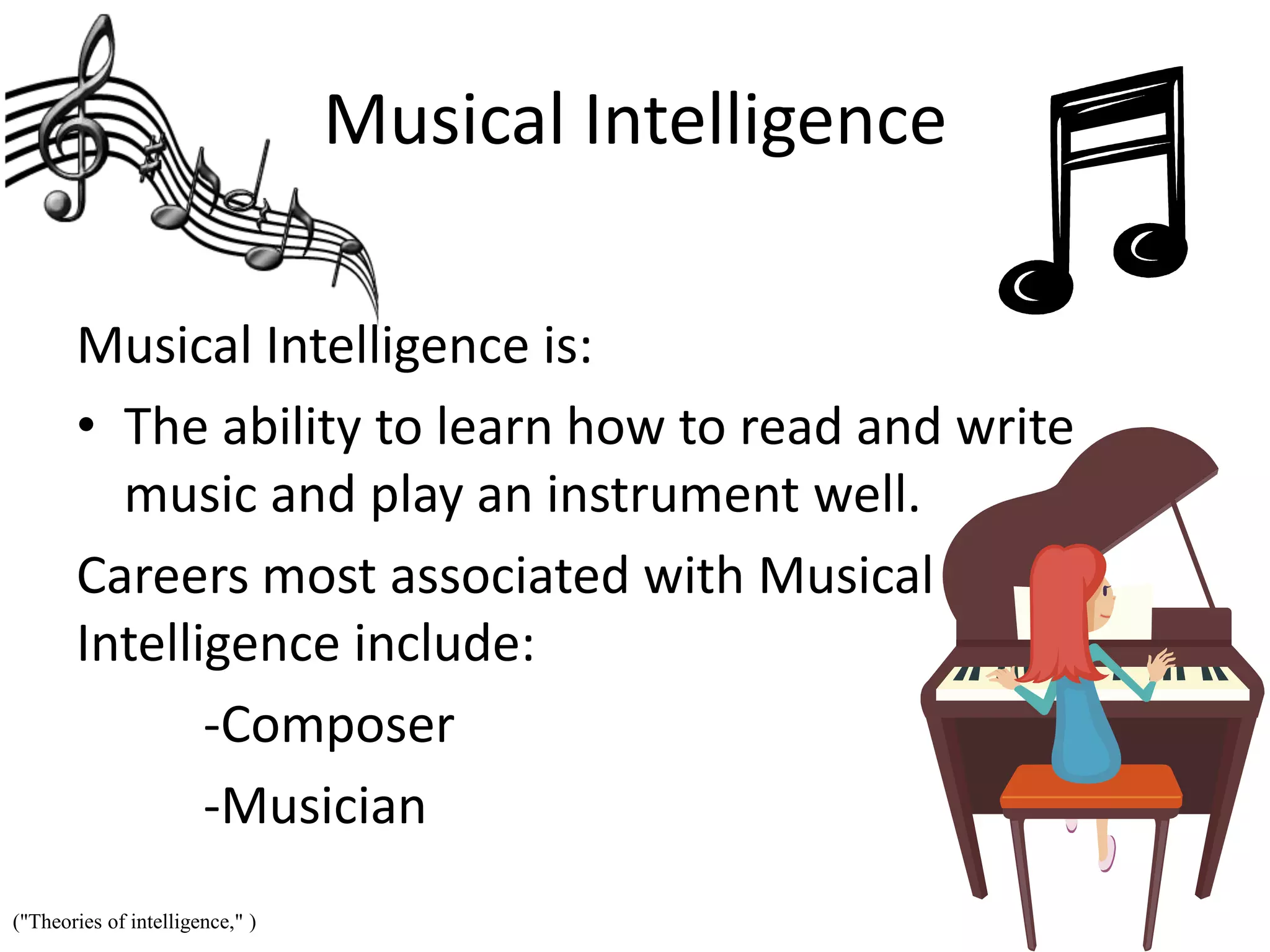
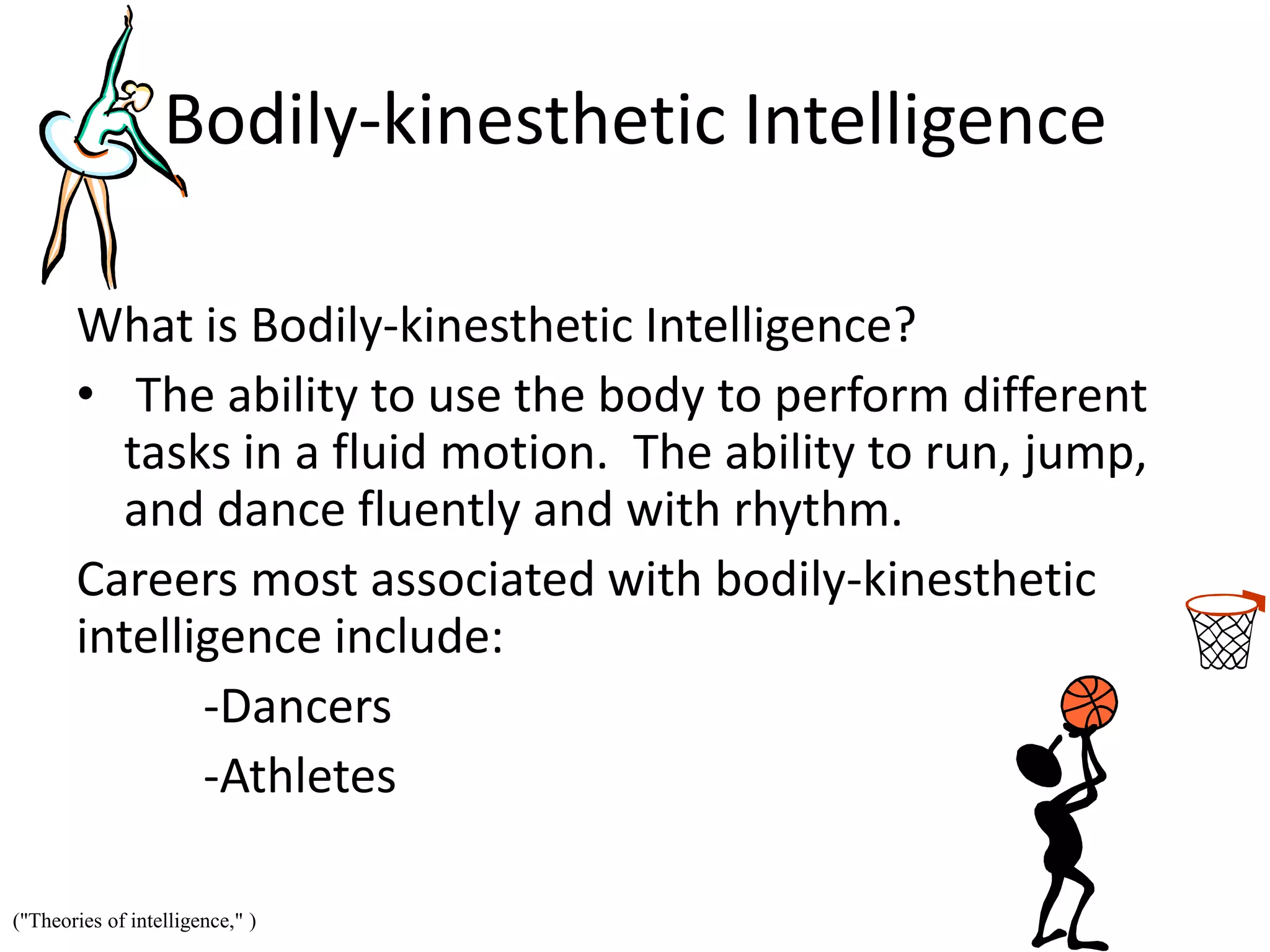
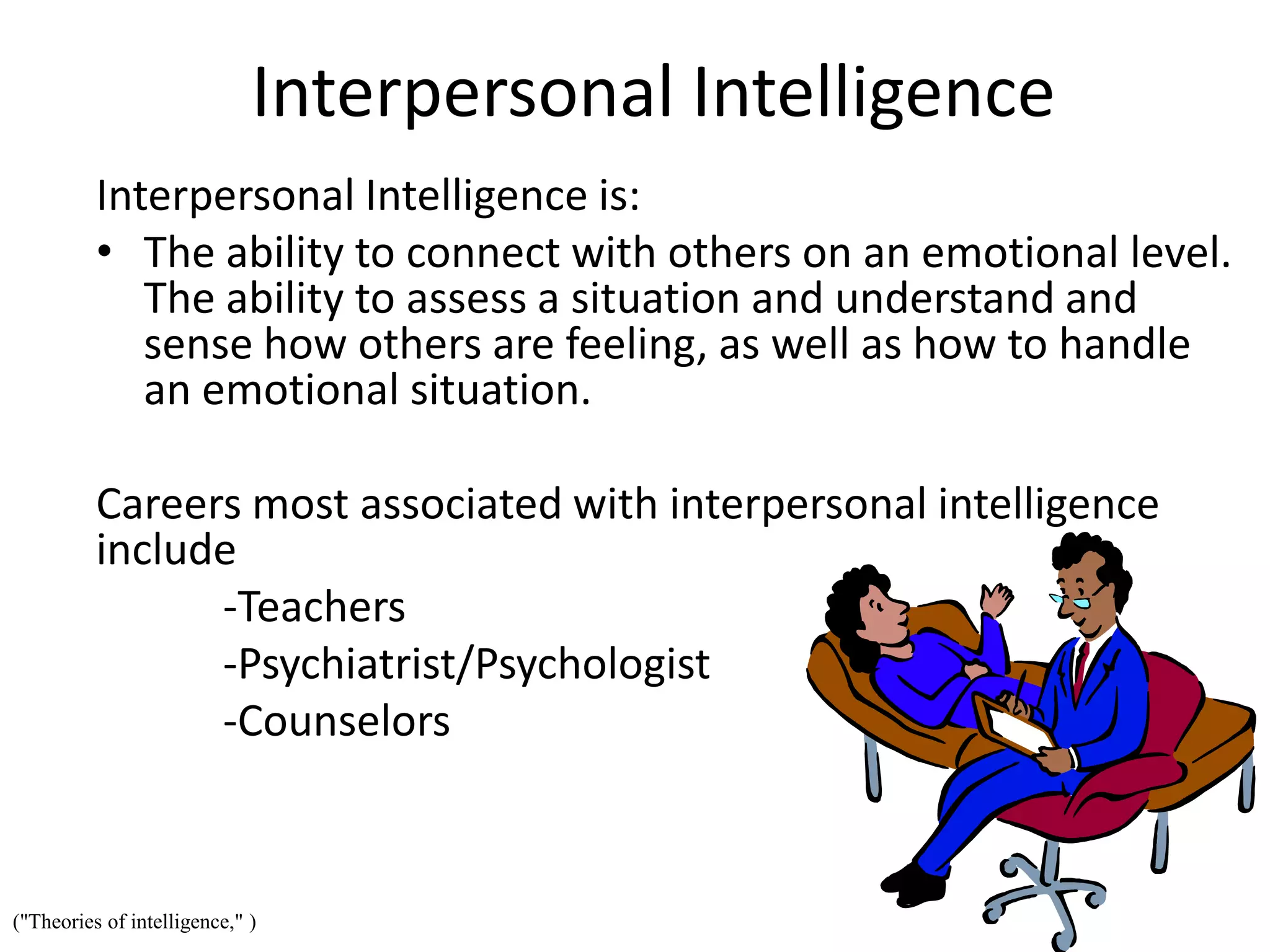
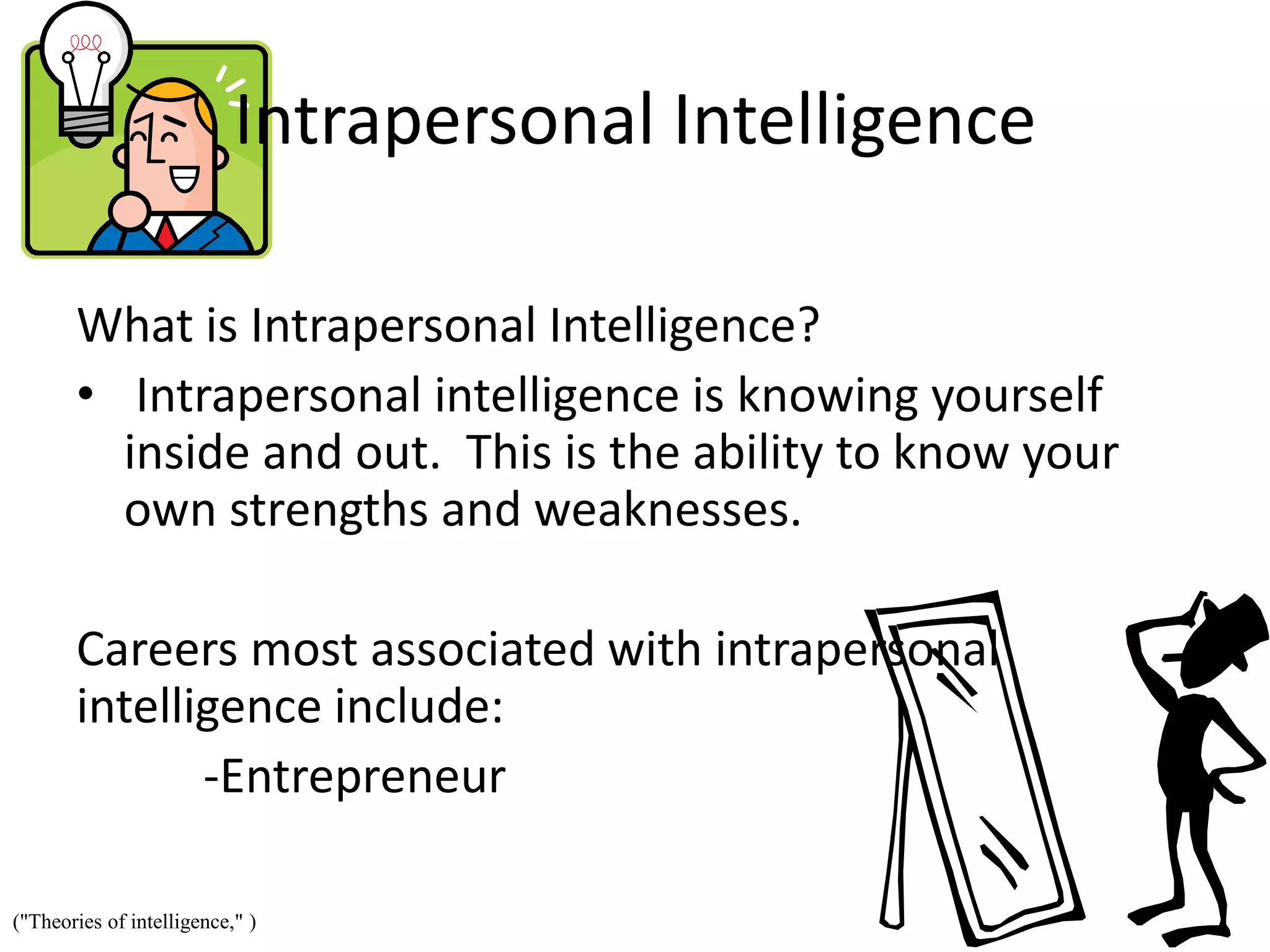
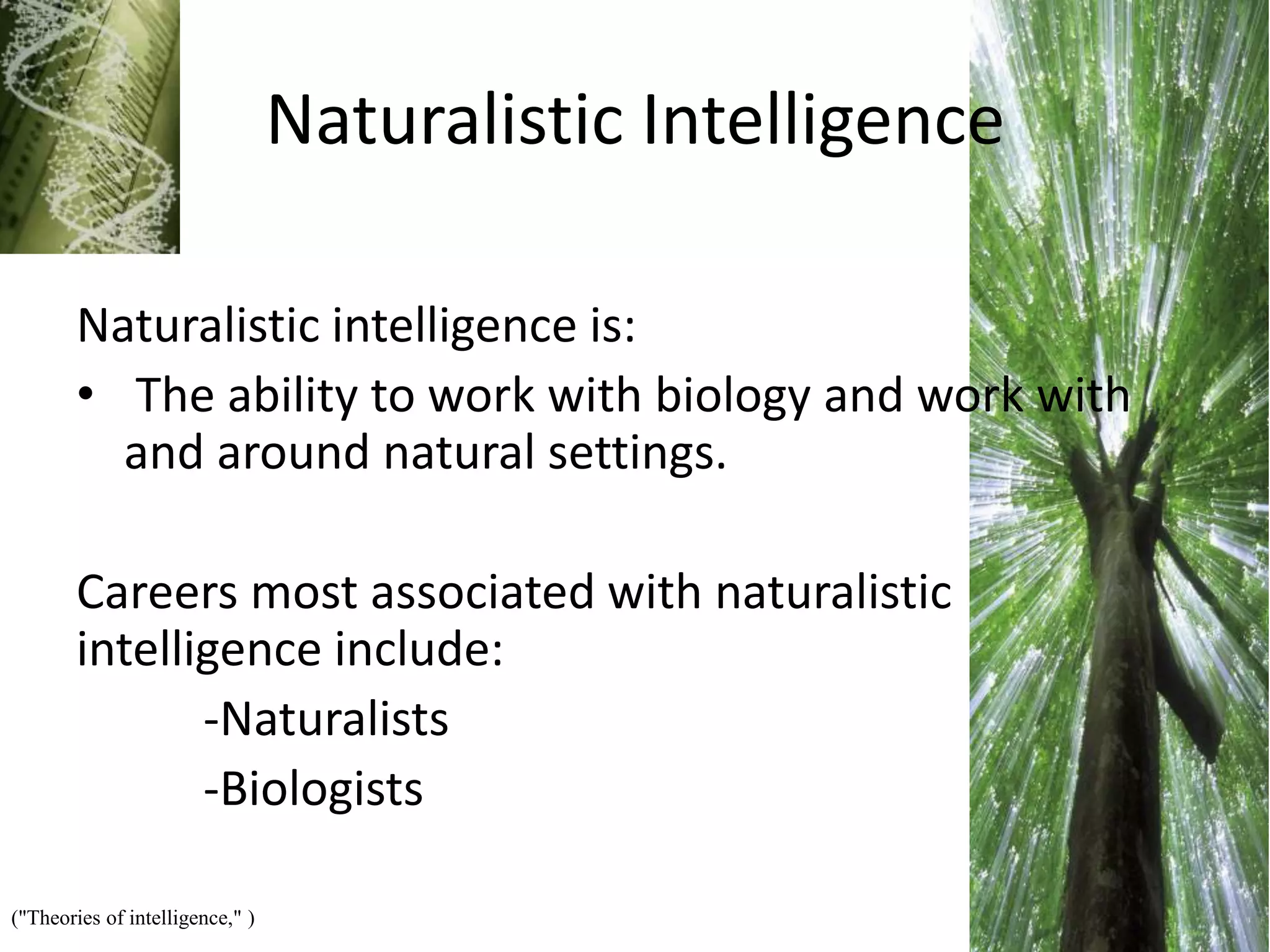
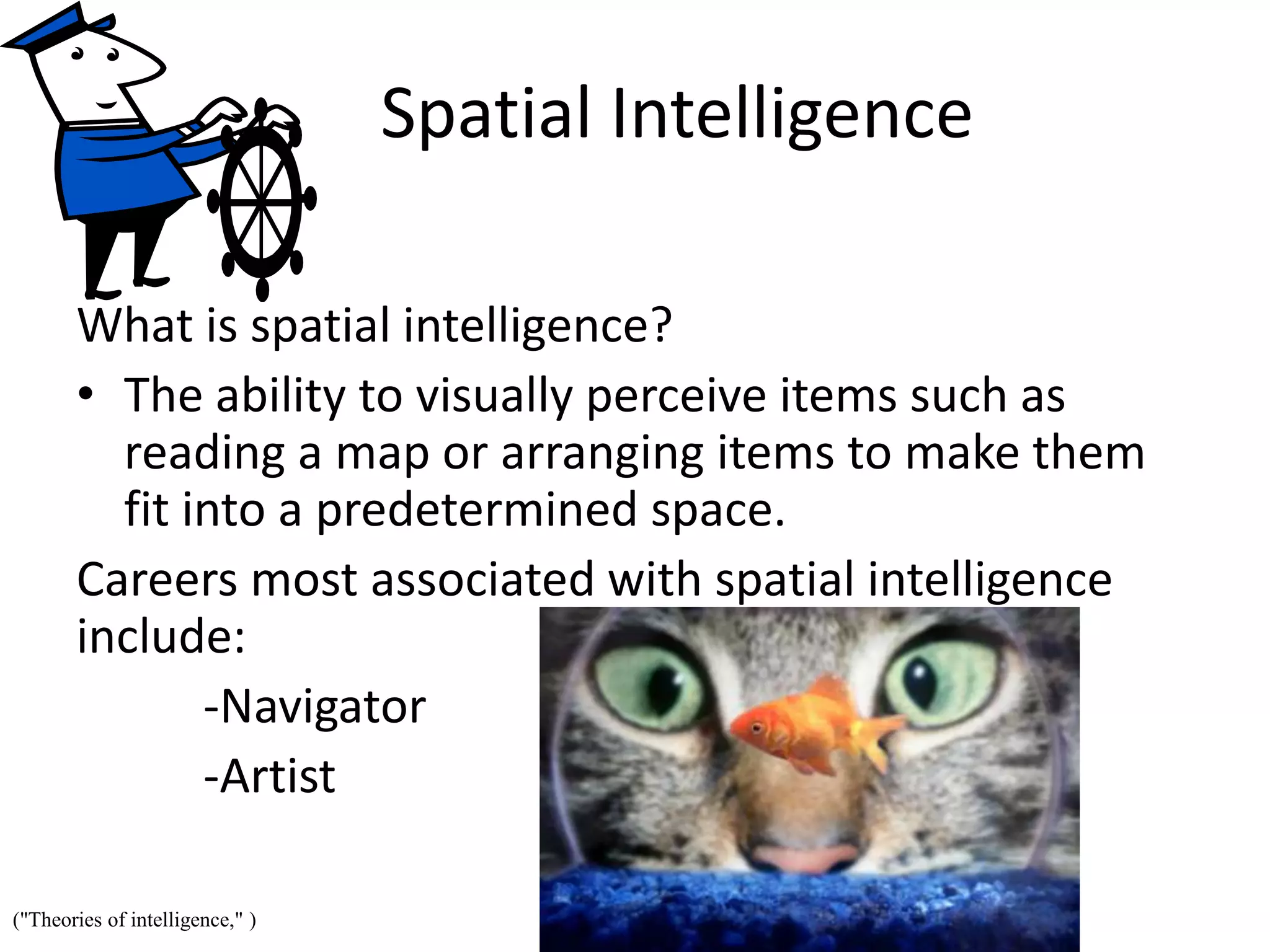
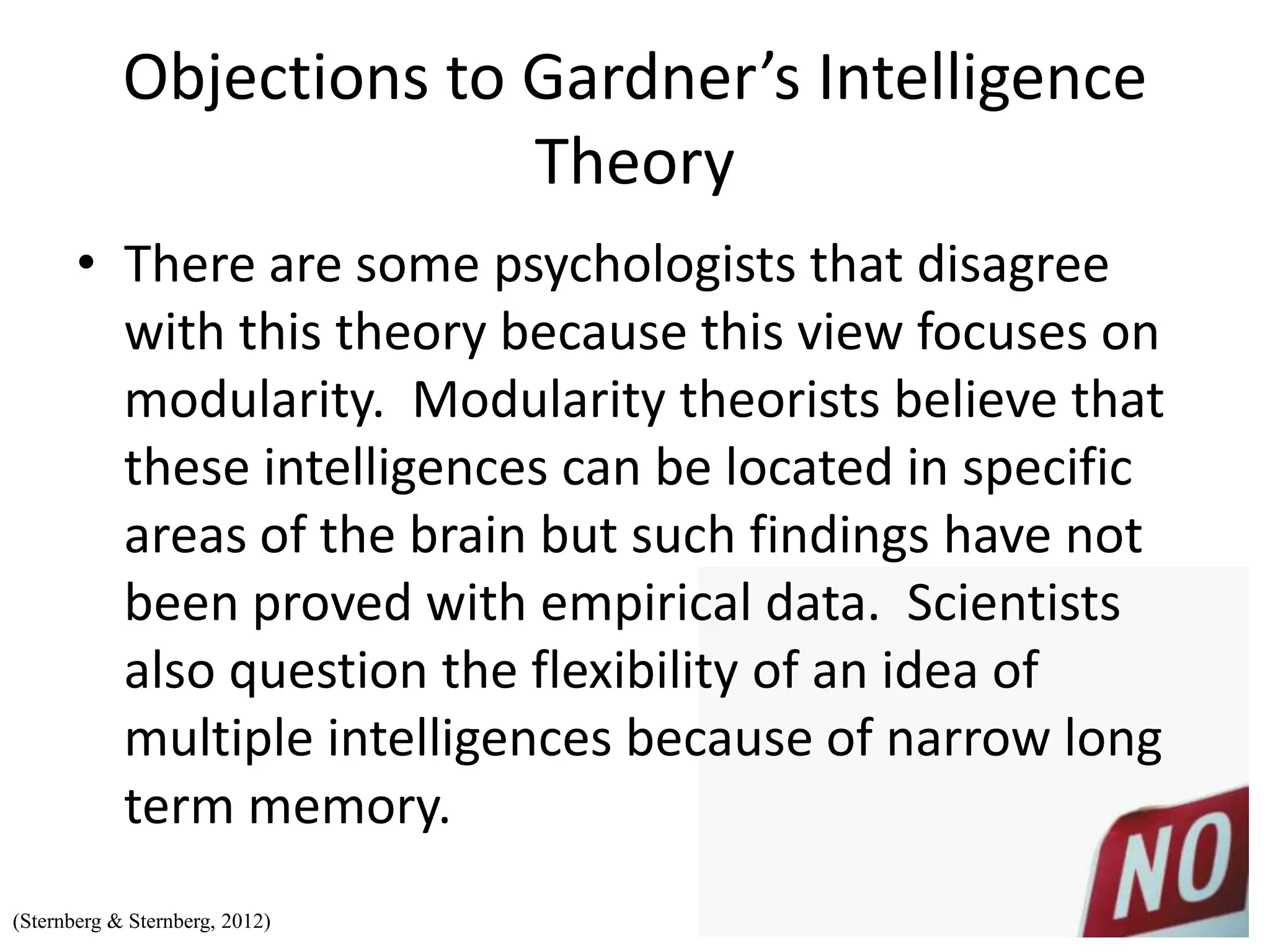
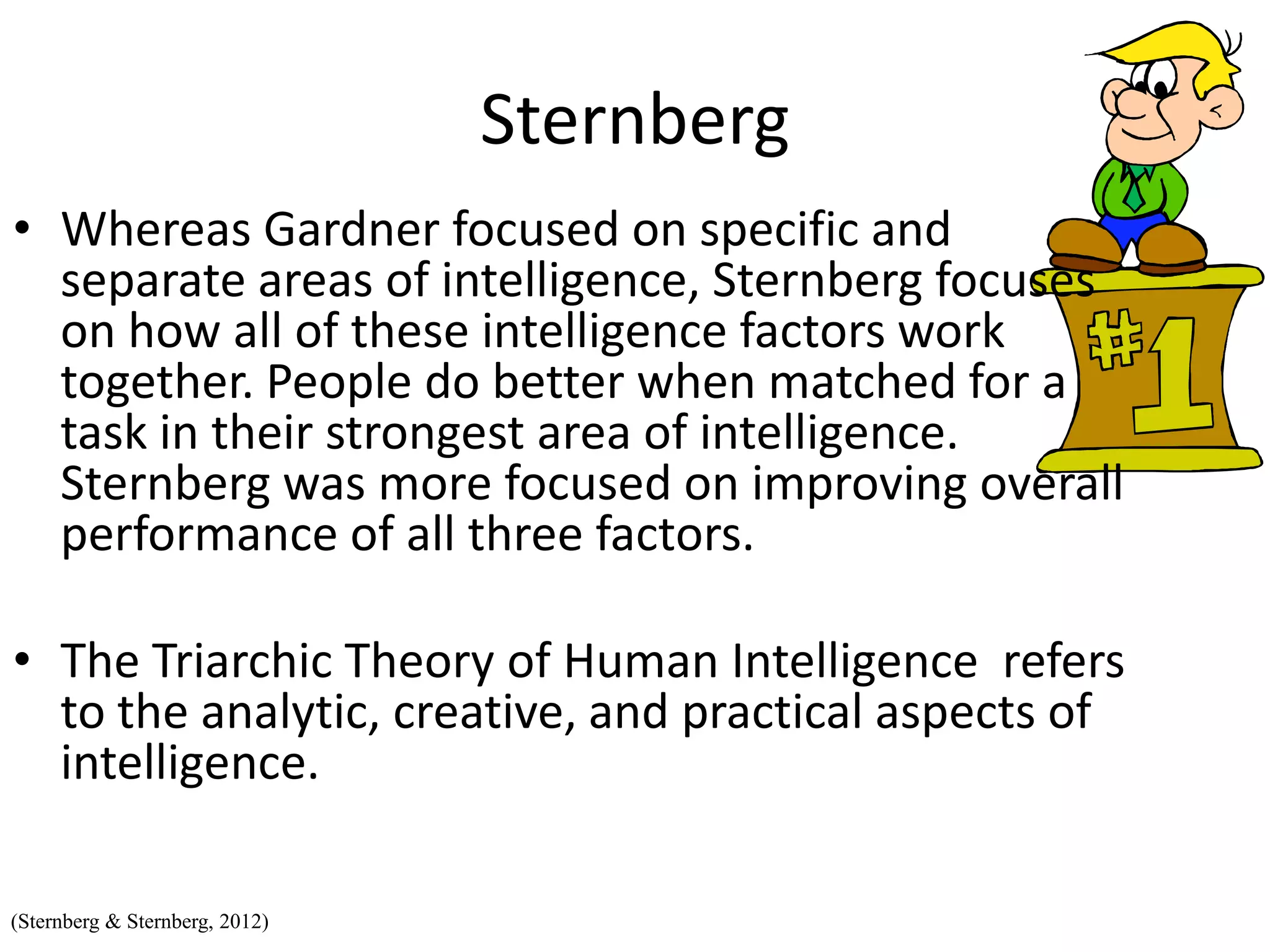
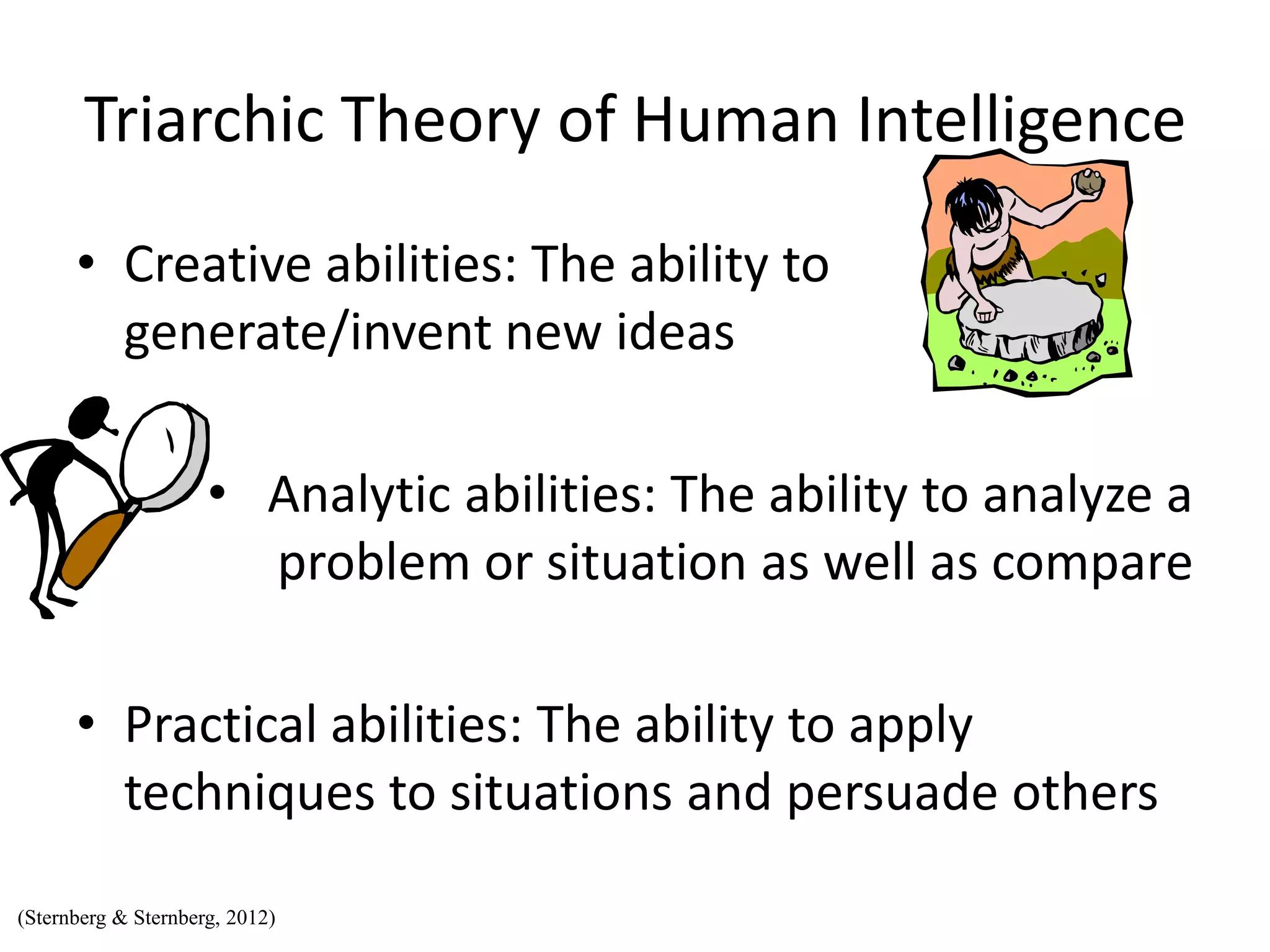
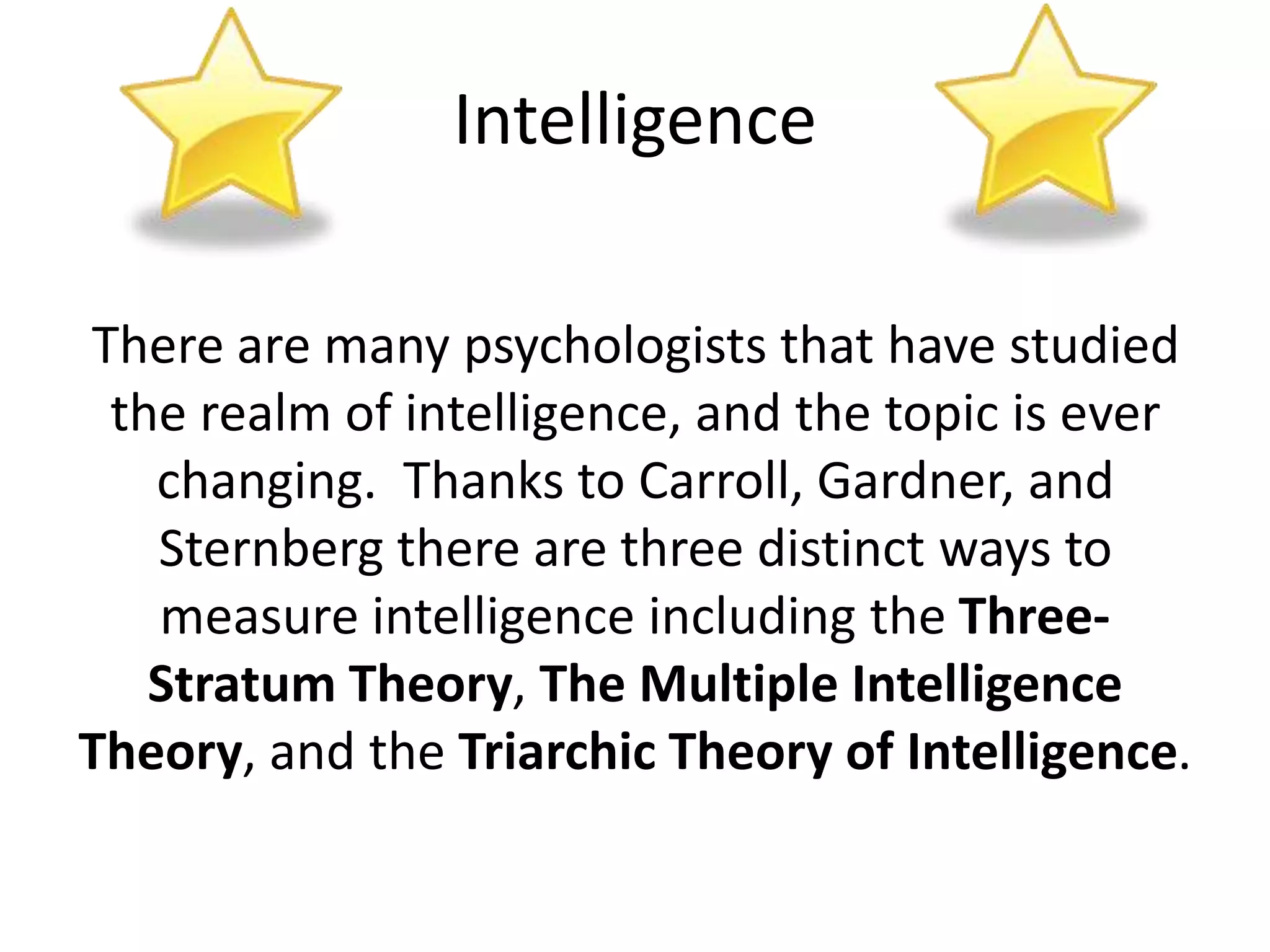
![Works Cited
• Howard Gardner's Multiple Intelligences [Web Photo]. Retrieved from
http://www.google.com/url?sa=i&rct=j&q=&esrc=s&source=images&cd=&cad=rja
&docid=NaRU7Mxg7otCoM&tbnid=0dnpt-
qtWbqKeM:&ved=0CAQQjB0&url=http://sitemaker.umich.edu/356.martin/home&
ei=oAu1UfbZJOPk0gHd6YDQAw&bvm=bv.47534661,d.dmQ&psig=AFQjCNFYHoIrjC
999H1dxlLaKA4M8kjuPg&ust=1370905660960885
• Sternberg, R., & Sternberg, K. (2012). Cognitive psychology. (6th ed., pp. 17-21).
Belmont, CA: Wadsworth, Cengage Learning.
• Theories of intelligence. (n.d.). Retrieved from
http://otec.uoregon.edu/intelligence.htm](https://image.slidesharecdn.com/intelligencepowerpoint-130609205428-phpapp01/75/Intelligence-powerpoint-19-2048.jpg)